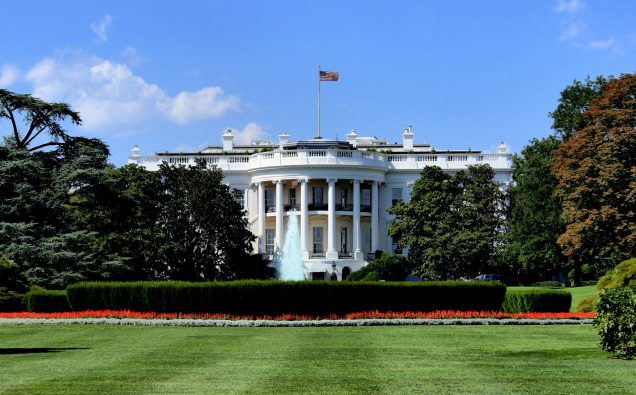
President Trump’s early April meetings with the leaders of Egypt, Jordan, and China reflect efforts by his administration to set a new tone and more assertive US policies in foreign affairs. The tone is intended to be seen as more firm, and the policies more protective of US interests, than those of the Obama administration – perhaps more so than those of any White House in decades.
It is clear that, at the moment, China is at the top of the new administration’s foreign policy agenda, given the two countries’ competitive positions on trade and on military influence in the South China Sea. North Korea remains the wild card in relations between Washington and Beijing, and it seems clear from its posturing and missile tests that, at least for now, Pyongyang will not be influenced by either of the world powers in its development of nuclear weapons.
The focus on the Middle East and East Asia has drawn attention away – at least for now – from questions about Russia and its role in the US elections last November, and about political campaigns in Europe this year.
Russian leader Vladimir Putin’s influence in the American presidential campaign has been a hotly debated topic for months. The debate was given added fuel even before Inauguration Day, when US intelligence officials declassified a report citing evidence that Putin had “ordered an influence campaign” against Hillary Clinton that also showed “a clear preference for President-elect Trump.”
The report cited cyberwarfare as the main weapon used by Russia, but declined to assess the impact of the effort on the election. Evidence, the report said, showed Russian cyberattacks aimed at influencing the outcome – but did not conclude that the Russians had succeeded in putting Donald Trump in the White House. That, the report said, was a political matter for others to decide.
In the weeks that followed, investigations were announced in both the House and Senate. The White House has continued to describe the charges as sour grapes thrown at the new President by Democrats whose candidate lost the election. This back-and-forth has further polarized an already-contentious relationship between members of Congress; bipartisan negotiations on any issue seem to be unlikely, at least for now, boding ill for White House initiatives on taxes and trade.
In the meantime, European countries – including some of America’s NATO allies – look forward to elections this year, and some are peaking over their shoulders at the Kremlin. Parliamentary or municipal elections in several Balkan and Northern European countries are taking place, including Finland, Norway, Albania, and Denmark; all eyes are on the presidential and legislative elections in France this Spring, and the German federal election in September. Charges of campaign interference by Moscow have already been heard in some of these countries, and denied by the Kremlin.
The issue was summed up at the end of last summer, well before the American election, by the former head of intelligence in Estonia, Eerik-Niiles Kross, who wrote an essay for Politico in the wake of his own country’s presidential balloting. He said Putin’s government is not so much interested in election outcomes as in degrading the functions of democratic governance in the West. Kross wrote, “what the Russians have in their sights is nothing less than the democratic fabric of American society and the integrity of the system of Western liberal values.”
Others in the West and in the US have voice the same caution – that Russia, a weak nation with a flat economy and its own troubles at home – aims simply to weaken its adversaries, rather than favor particular candidates.
Whatever Russia’s intentions, and whatever the outcome of investigations in coming months, Trump and Putin now seem to share only the view that charges of collusion are a hoax. Beyond that, public statements by both leaders indicate a cooler relationship than they had after the election last November – and polls show they seem to be going in different directions.
Russians give Putin an approval rating of more than 80%, and while he hasn’t committed to running again, if he seeks re-election in the presidential campaign next year he will be heavily favored to win despite domestic economic problems.
President Trump, on the other hand, is sliding in the other direction, with polls of the electorate giving him a lower approval rating than for any president in US history this soon after being voted into office. As his approval rating drops, polls show an increase in the number of US adults – now more than 60% – favoring a probe into charges of Russian influence in the US election.
It’s against this backdrop that leaders of Egypt, Jordan, and China have come to the US for talks with the new American president.

















